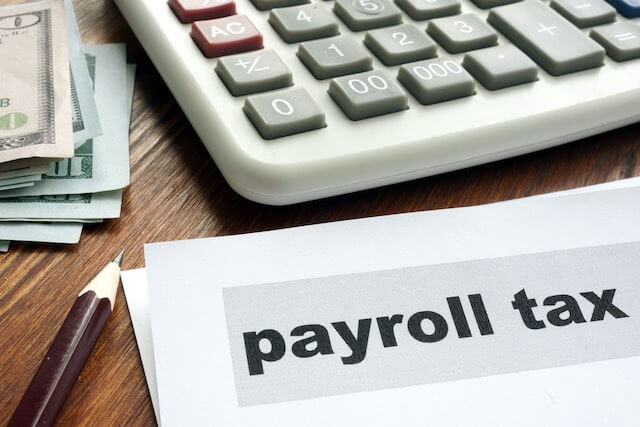The media has started to report that President Donald Trump wants to eliminate the payroll tax that finances both Social Security and Medicare for the rest of the year – maybe forever.
That coverage has largely gone from reporting news to providing speculation, most of which does not seem well founded.
While Trump has said reducing the payroll tax is an interest, there is no proposal to consider. So when you hear that Trump wants to “blow a trillion-dollar hole” in our social insurance programs, change the channel. There is no story to cover yet.
I think there is no chance that President Trump wants to go into the election cycle facing questions about how he ended Social Security. So, my guess is that any proposal that emerges from Washington that reduces the payroll tax cuts would come with a package of funding for Social Security and Medicare from general revenue. That is how it worked in 2011 and 2012. Separately, I do not believe that employers will get a break because that revenue does not flow into the pocket of voters.
When you hear that this proposal would create a $1 trillion dollar hole, understand that half of that figure is hyperbolic drama designed to get you to forward the article to friends and family.
The employer is unlikely to get the break because one employer hires many people, so the employer would get a very large tax break.
To illustrate, if I hire 25 people who earn about $50,000, the employer’s share of payroll taxes is nearly $100,000. You are talking about concentrating a very large tax break in relatively few hands.
Keep in mind, it is generally accepted economics that the employee bears the full cost of payroll taxes. While he or she pays half of the tax directly through withholding, the remainder is taken in the form of lower wages. It is assumed that an employer will lower what he or she is willing to pay an employee to offset the cost of employment like FICA or healthcare.
There is of course no way for the government to get employers to pass the savings onto the employee, so entirely ending the payroll tax would be a fantastic gift to some of the richest people on earth. Enabling the employer to keep the tax payroll tax revenue does not sound realistic.
Within Workers
At this point, we are looking at suggestions that would reward people who make a lot of money already. You have to ask whether the nation should take on extra debt in order to help keep your average Congressman spending money. It is a very difficult sell to the unemployed voter who would get nothing. It is a tough sell to the millions of workers who work in industries not covered by Social Security. It is a very tough sell to seniors who want confidence that we are saving the economy by sacrificing the program on which they depend.
| Who Wins (if implemented Mar 31, 2020) | ||
| Worker Who Earns | Employee Share | Employer Share |
| $1,000,000+ | They have paid their FICA for the year, so there is no additional tax break. Their FICA obligation has been met for the year. | |
| $174,900 (say your typical Congressman) | $7,221.60 | $7,221.60 |
| $137,900 | $7,912 | $10,549 |
| $90,000 | $5,164 | $6,885 |
| $50,000 | $2,869 | $3,825 |
| $25,000 | $1,434 | $1,912.5 |
| Someone unemployed by the economic slowdown created by the CoronaVirus | 0 | |
Make no mistake, the more that Social Security depends upon general fund revenue, the more it will appear in budget debates about how it drives the debt. Seniors, and those approaching retirement, do not want that discussion at all.
What We Did In The Past
Back in 2011 and 2012, the government gave workers a small break on what they paid in payroll taxes. All of the lost revenue was back filled by the general fund, and cost future Americans about $100 B (not including interest) in both years. It was a hand-out to people who were lucky enough to have jobs. This wasn’t a good idea at the time, and the suggestion that we would repeat it on a larger scale does not seem well thought out.
This idea has little prospect in Congress given the distance that politicians keep from Social Security and members of the other party. Until there is an actual proposal to consider, turn the channel.



